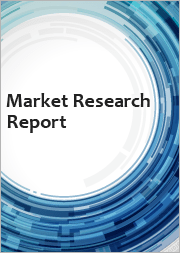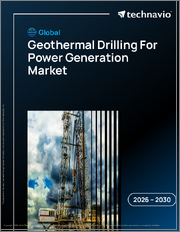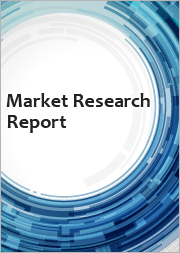
|
시장보고서
상품코드
1574125
에너지 및 전력 분야 인공지능(AI) 시장 : 예측(2024-2029년)Artificial Intelligence (AI) in Energy and Power Market - Forecasts from 2024 to 2029 |
||||||
에너지 및 전력 분야 인공지능(AI) 시장은 예측 기간 동안 24.54%의 CAGR을 기록하며 2024년 59억 2,300만 달러에서 2029년에는 177억 4,500만 달러에 달할 것으로 예상됩니다.
인공지능(AI)은 에너지 및 전력 시장에서 점점 더 중요한 도구가 되고 있으며, AI는 에너지 관련 프로세스를 자동화 및 개선하고 더 나은 에너지 관리를 제공함으로써 더 낮은 비용으로 더 효율적인 운영을 실현할 수 있습니다. 또한, 환경에 미치는 악영향을 줄이고 더 나은 기능 강화를 완전히 시작할 수 있습니다. 에너지 분야에서 AI는 주로 수요 예측에 사용됩니다.
또한, AI 시스템은 소비자 행동, 날씨 패턴 및 기타 변수에 대한 풍부한 데이터를 분석하여 에너지가 어떻게 사용되는지 더 정확하게 파악할 수 있어 전력회사가 자원을 더 잘 관리할 수 있도록 도와줄 수 있습니다. 에너지 생산 및 공급 시스템을 구축하는 데 사용됩니다. 예를 들어, 기계 학습 알고리즘은 태양광 및 풍력발전 시스템의 데이터를 분석하여 패턴을 감지하고 발전량을 예측할 수 있습니다.
또한, AI 기반 시스템은 건물 내 에너지 소비 프로세스를 모니터링하고 분석하여 에너지가 낭비되는 곳과 비효율적으로 사용되는 곳을 파악하고 에너지 절약 솔루션으로 대체할 수 있는 방법을 파악할 수 있습니다. 이는 온실가스 배출량을 줄일 수 있을 뿐만 아니라, 건물 소유주나 임차인의 자본 비용 절감 효과를 얻을 수 있는 잠재력을 가지고 있습니다. 그러나 데이터가 충분하지 않거나 오래된 데이터는 잘못된 AI 모델을 생성하고, 잘못된 운영으로 인해 경제적 손실과 안전상의 위험을 초래할 수 있습니다. 따라서 시장이 원활하게 성장하기 위해서는 이 시스템에 대한 효과적인 대응이 필요합니다.
에너지 및 전력 분야 인공지능(AI) 시장 촉진요인:
- 스마트 그리드 도입 증가는 에너지 및 전력 분야에서 인공지능(AI)의 성장을 촉진할 것으로 예상됩니다.
AI가 에너지 및 전력 분야에 적용되고 있는 대표적인 응용 분야 중 하나는 스마트 그리드입니다. 스마트 그리드는 첨단 센서, 통신 기술, 자동화 시스템을 사용하면서 전력을 공급하고 이러한 서비스의 효율적인 제공을 보장합니다. 대량의 데이터를 실시간으로 비교하여 의사결정을 내림으로써 전력 회사는 AI를 활용하여 더 나은 의사결정을 내릴 수 있으며, 보다 원활한 실행과 성능 향상을 위해 AI를 활용할 수 있습니다.
예를 들어, 2024년 1월 스페인의 이베드로라 에스파냐(Iberdrola Espana)는 BCAM과 함께 그리드 최적화를 목표로 하는 AI 혁신 데이터 공간 프로젝트를 진행하고 있습니다. 이 이니셔티브는 세계 스마트 그리드 혁신 허브의 일부로, 특히 재생에너지 통합 및 경제적인 전기화를 위해 배전 용량과 효율성 측면에서 그리드 서비스에 대한 접근성과 품질을 향상시키는 것을 목표로 하는 상호 운용 가능한 작업 공간입니다.
에너지 및 전력 분야 인공지능(AI) 시장의 지리적 전망:
- 북미가 큰 시장 점유율을 차지할 것으로 예상됩니다.
북미는 미국을 비롯한 여러 국가에서 재생에너지 도입과 스마트 그리드 기술 도입이 증가함에 따라 AI 에너지 및 전력 시장에서 가장 빠른 성장률을 보일 것으로 예상됩니다. 미국 정부의 재생에너지 사용 확대는 전력 및 에너지 산업에서 AI 애플리케이션의 증가를 촉진하고 있습니다.
미국 에너지 정보국은 재생에너지 발전이 2022년 미국 전체 전력 공급의 약 13%를 차지할 것이라고 보고했습니다. 또한 2022년 미국 전체 재생에너지 소비의 약 61%는 전력 부문이며, 재생에너지는 작년 미국 발전량의 5 분의 1 이상, 즉 21%를 차지했습니다. 또한, 이 지역은 스마트 그리드 및 친환경 에너지 기술에 수직적으로 초점을 맞춘 최고 수준의 유틸리티 및 AI 기술 제공 업체를 자랑하며 향후 몇 년 동안 지역 시장의 성장으로 이어질 것입니다.
이 보고서를 구매해야 하는 이유
- 통찰력 있는 분석 : 고객 부문, 정부 정책, 사회경제적 요인, 소비자 선호도, 산업 및 기타 하위 부문에 초점을 맞춰 주요 지역과 신흥 지역을 아우르는 심층적인 시장 인사이트를 얻을 수 있습니다.
- 경쟁 환경 : 전 세계 주요 기업들이 채택하고 있는 전략적 전략을 이해하고, 적절한 전략을 통한 시장 침투 가능성을 이해합니다.
- 시장 촉진요인과 향후 동향 : 역동적인 요인과 중요한 시장 동향을 조사하고, 이들이 향후 시장 발전을 어떻게 형성할 것인지에 대해 알아봅니다.
- 실행 가능한 제안 : 역동적인 환경에서 새로운 비즈니스 스트림과 수익을 발굴하기 위한 전략적 의사결정을 내릴 수 있도록 인사이트를 활용합니다.
- 광범위한 독자층 : 스타트업, 연구기관, 컨설턴트, 중소기업, 대기업에 유익하고 비용 효율적입니다.
기업은 어떤 목적으로 우리 보고서를 사용하는가?
산업 및 시장 인사이트, 사업 기회 평가, 제품 수요 예측, 시장 진입 전략, 지리적 확장, 자본 투자 결정, 규제 프레임워크 및 영향, 신제품 개발, 경쟁의 영향
조사 범위
- 과거 데이터 및 예측, 2022-2029년
- 성장 기회, 과제, 공급망 전망, 규제 프레임워크, 고객 행동 및 트렌드 분석
- 경쟁사 포지셔닝, 전략 및 시장 점유율 분석
- 부문 및 국가를 포함한 지역별 매출 성장 및 예측 분석
- 기업 프로파일링(전략, 제품, 재무 정보, 주요 개발 등)
목차
제1장 소개
- 시장 개요
- 시장 정의
- 조사 범위
- 시장 세분화
- 통화
- 가정
- 기준 연도와 예측 연도 타임라인
- 이해관계자에 대한 주요 이점
제2장 조사 방법
- 조사 설계
- 조사 과정
제3장 주요 요약
- 주요 조사 결과
제4장 시장 역학
- 시장 성장 촉진요인
- 시장 성장 억제요인
- Porter's Five Forces 분석
- 업계 밸류체인 분석
- 애널리스트의 견해
제5장 에너지 및 전력 분야 AI 시장 : 기술별
- 소개
- 머신러닝
- 자연어 처리
- 컴퓨터 비전
- 기타
제6장 에너지 및 전력 분야 AI 시장 : 용도별
- 소개
- 수요 예측
- 에너지 생산·배급 최적화
- 에너지 관리
- 스마트 그리드
- 스마트 미터
- 기타
제7장 에너지 및 전력 분야 AI 시장 : 최종사용자별
- 소개
- 상업용·산업용
- 주거용
제8장 에너지 및 전력 분야 AI 시장 : 지역별
- 소개
- 북미
- 기술별
- 용도별
- 최종사용자
- 국가별
- 남미
- 기술별
- 용도별
- 최종사용자
- 국가별
- 유럽
- 기술별
- 용도별
- 최종사용자
- 국가별
- 중동 및 아프리카
- 기술별
- 용도별
- 최종사용자
- 국가별
- 아시아태평양
- 기술별
- 용도별
- 최종사용자
- 국가별
제9장 경쟁 환경과 분석
- 주요 기업과 전략 분석
- 시장 점유율 분석
- 합병, 인수, 합의, 협업
- 경쟁 대시보드
제10장 기업 개요
- General Electric
- Siemens Energy
- Schneider Electric
- ABB Ltd.
- Honeywell International Inc.
- C3.ai Inc.
- Eaton Corporation Plc
- IBM Corporation
Artificial Intelligence (AI) in the energy and power market is projected to witness a CAGR of 24.54% during the forecast period to reach US$17.745 billion by 2029, up from US$5.923 billion in 2024.
Artificial intelligence (AI) has been increasingly becoming a significant tool in the energy and power markets. It can automate and improve energy-related processes and provide more efficient operation at lower cost by providing better energy management. Additionally, it reduces adverse environmental impacts and fully initiates better enhancements. In energy sectors, AI is used mainly for demand forecasting.
Moreover, by analyzing the wealth of data available on consumer behavior, weather patterns, and other variables, AI systems can give a much more accurate idea of how energy is used, allowing utility companies to manage their resources better. AI is used to create more cost-effective energy production and distribution systems. For example, machine learning algorithms can analyze solar or wind energy systems data to detect patterns and predict how much power will be generated.
Additionally, AI-powered systems can monitor and analyze energy-consuming processes in buildings, identify where it is being wasted or used inefficiently, and how they can be replaced with an energy-saving solution. This has the potential to reduce greenhouse gas emissions as well as achieve capital cost savings for building owners and tenants. However, insufficient or outdated data could result in wrong AI models, leading to poor operationalization, financial loss, and safety danger. Hence, the system must be effectively dealt with for the market to grow without any hindrances.
ARTIFICIAL INTELLIGENCE (AI) IN ENERGY AND POWER MARKET DRIVER:
- Increasing smart grid deployment is expected to drive AI in the energy and power market growth.
One of the prominent applications is smart grids, where AI is employed in the energy and power sectors. Smart grids use advanced sensors, communication technologies, and automation systems while providing electricity to ensure an efficient delivery of these services. Comparing large volumes of data in real-time as they come to a decision helps the utility make decisions better with AI, which is applied for smoother execution and performance improvement.
For instance, in January 2024, Spain's Iberdrola Espana is teaming with BCAM on the AI Innovation Data Space project targeting grid optimization. The initiative is part of the Global Smart Grids Innovation Hub, an interoperable workspace aimed at enhancing the access and quality of grid services in terms of distribution capacity and efficiency, especially for renewable integration and economic electrification.
Artificial Intelligence (AI) in Energy and Power Market Geographical Outlook:
- The North American region is expected to hold a substantial market share.
North America is expected to experience one of the fastest growth rates in the AI energy and power market due to high incremental changes in renewable energy adoption and smart grid technologies dominantly across countries such as the United States. The growth in the use of renewable energy sources by the United States government has facilitated an increase in AI applications across its power and energy industry.
The U.S. Energy Information Administration reported that renewable energy generated approximately 13 percent of the entire U.S. electricity supply in 2022. Additionally, about 61% of all U.S. renewable energy consumption in 2022 was in the electric power sector, and renewables accounted for more than a fifth, i.e., 21% of U.S. electricity generation last year. Additionally, this region boasts some of the top utilities and AI technology providers, with a vertical focus on smart grid and green energy technologies, leading to regional market growth in the years ahead.
Reasons for buying this report:-
- Insightful Analysis: Gain detailed market insights covering major as well as emerging geographical regions, focusing on customer segments, government policies and socio-economic factors, consumer preferences, industry verticals, other sub- segments.
- Competitive Landscape: Understand the strategic maneuvers employed by key players globally to understand possible market penetration with the correct strategy.
- Market Drivers & Future Trends: Explore the dynamic factors and pivotal market trends and how they will shape up future market developments.
- Actionable Recommendations: Utilize the insights to exercise strategic decision to uncover new business streams and revenues in a dynamic environment.
- Caters to a Wide Audience: Beneficial and cost-effective for startups, research institutions, consultants, SMEs, and large enterprises.
What do businesses use our reports for?
Industry and Market Insights, Opportunity Assessment, Product Demand Forecasting, Market Entry Strategy, Geographical Expansion, Capital Investment Decisions, Regulatory Framework & Implications, New Product Development, Competitive Intelligence
Report Coverage:
- Historical data & forecasts from 2022 to 2029
- Growth Opportunities, Challenges, Supply Chain Outlook, Regulatory Framework, Customer Behaviour, and Trend Analysis
- Competitive Positioning, Strategies, and Market Share Analysis
- Revenue Growth and Forecast Assessment of segments and regions including countries
- Company Profiling (Strategies, Products, Financial Information, and Key Developments among others)
Market Segmentation:
The Artificial Intelligence (AI) in Energy and Power Market is segmented and analyzed as below:
By Technology
- Machine Learning
- Natural Language Processing
- Computer Vision
- Others
By Application
- Demand Forecasting
- Energy Production and Distribution Optimization
- Energy Management
- Smart Grids
- Smart Meter
- Others
By End-User
- Commercial and Industrial
- Residential
By Geography
- North America
- USA
- Canada
- Mexico
- South America
- Brazil
- Argentina
- Others
- Europe
- UK
- Germany
- France
- Spain
- Others
- Middle East and Africa
- Saudi Arabia
- Israel
- UAE
- Others
- Asia Pacific
- China
- Japan
- India
- South Korea
- Australia
- Vietnam
- Indonesia
- Others
TABLE OF CONTENTS
1. INTRODUCTION
- 1.1. Market Overview
- 1.2. Market Definition
- 1.3. Scope of the Study
- 1.4. Market Segmentation
- 1.5. Currency
- 1.6. Assumptions
- 1.7. Base and Forecast Years Timeline
- 1.8. Key benefits for the stakeholders
2. RESEARCH METHODOLOGY
- 2.1. Research Design
- 2.2. Research Process
3. EXECUTIVE SUMMARY
- 3.1. Key Findings
4. MARKET DYNAMICS
- 4.1. Market Drivers
- 4.2. Market Restraints
- 4.3. Porter's Five Forces Analysis
- 4.3.1. Bargaining Power of Suppliers
- 4.3.2. Bargaining Power of Buyers
- 4.3.3. Threat of New Entrants
- 4.3.4. Threat of Substitutes
- 4.3.5. Competitive Rivalry in the Industry
- 4.4. Industry Value Chain Analysis
- 4.5. Analyst View
5. AI IN ENERGY AND POWER MARKET BY TECHNOLOGY
- 5.1. Introduction
- 5.2. Machine Learning
- 5.3. Natural Language Processing
- 5.4. Computer Vision
- 5.5. Others
6. AI IN ENERGY AND POWER MARKET BY APPLICATION
- 6.1. Introduction
- 6.2. Demand Forecasting
- 6.3. Energy Production and Distribution Optimization
- 6.4. Energy Management
- 6.5. Smart Grids
- 6.6. Smart Meter
- 6.7. Others
7. AI IN ENERGY AND POWER MARKET BY END-USER
- 7.1. Introduction
- 7.2. Commercial and Industrial
- 7.3. Residential
8. AI IN ENERGY AND POWER MARKET BY GEOGRAPHY
- 8.1. Introduction
- 8.2. North America
- 8.2.1. By Technology
- 8.2.2. By Application
- 8.2.3. End-User
- 8.2.4. By Country
- 8.2.4.1. USA
- 8.2.4.2. Canada
- 8.2.4.3. Mexico
- 8.3. South America
- 8.3.1. By Technology
- 8.3.2. By Application
- 8.3.3. End-User
- 8.3.4. By Country
- 8.3.4.1. Brazil
- 8.3.4.2. Argentina
- 8.3.4.3. Others
- 8.4. Europe
- 8.4.1. By Technology
- 8.4.2. By Application
- 8.4.3. End-User
- 8.4.4. By Country
- 8.4.4.1. UK
- 8.4.4.2. Germany
- 8.4.4.3. France
- 8.4.4.4. Spain
- 8.4.4.5. Others
- 8.5. Middle East and Africa
- 8.5.1. By Technology
- 8.5.2. By Application
- 8.5.3. End-User
- 8.5.4. By Country
- 8.5.4.1. Saudi Arabia
- 8.5.4.2. Israel
- 8.5.4.3. UAE
- 8.5.4.4. Others
- 8.6. Asia Pacific
- 8.6.1. By Technology
- 8.6.2. By Application
- 8.6.3. End-User
- 8.6.4. By Country
- 8.6.4.1. China
- 8.6.4.2. Japan
- 8.6.4.3. India
- 8.6.4.4. South Korea
- 8.6.4.5. Australia
- 8.6.4.6. Vietnam
- 8.6.4.7. Indonesia
- 8.6.4.8. Others
9. COMPETITIVE ENVIRONMENT AND ANALYSIS
- 9.1. Major Players and Strategy Analysis
- 9.2. Market Share Analysis
- 9.3. Mergers, Acquisitions, Agreements, and Collaborations
- 9.4. Competitive Dashboard
10. COMPANY PROFILES
- 10.1. General Electric
- 10.2. Siemens Energy
- 10.3. Schneider Electric
- 10.4. ABB Ltd.
- 10.5. Honeywell International Inc.
- 10.6. C3.ai Inc.
- 10.7. Eaton Corporation Plc
- 10.8. IBM Corporation



















